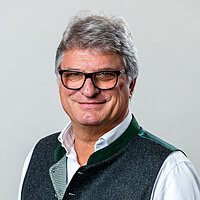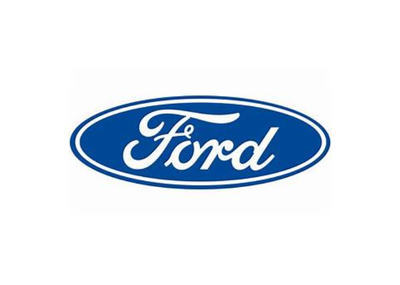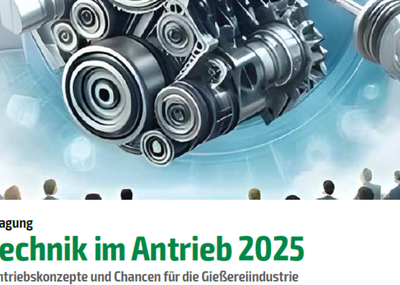In a keynote speech at the VDI Congress Dritev 2025, Hildegard Müller, President of the German Association of the Automotive Industry (VDA), outlined the central challenges, opportunities, and key political decisions required to drive the transformation of the German automotive industry. Her message: the path toward climate neutrality and digitalization can only succeed if politics, society, and industry work together to create reliable framework conditions.
1. Mobility Means Inclusion – The Car Remains Indispensable
Müller emphasized the crucial role of the automobile in ensuring individual mobility, particularly in rural areas, where public transport is often insufficient. In such regions, personal cars guarantee social and economic participation. Contrary to popular belief, young people's interest in cars remains strong – recent data from the Federal Motor Transport Authority shows a historic high in car ownership among people under 25.
2. Transformation Demands Profound Change
The push toward a climate-neutral, digitally connected mobility future presents enormous challenges. In addition to massive investments, new political frameworks are required. Ongoing supply chain disruptions, geopolitical tensions, and rising energy prices are intensifying the pressure – especially on the industrial SME sector, including many foundries. Even large OEMs and suppliers are increasingly affected.
-
Key message: The European automotive industry must invest in a climate-neutral, digital future to master the transformation.
3. Global Competitiveness – China as a Benchmark
China is rapidly advancing to become a global technology leader, driven by a domestic market of 1.4 billion people. Müller stressed that European manufacturers can only remain competitive with market-oriented, regionally tailored products – from digital features to design preferences. Whether cars in Europe need karaoke machines is a matter of taste.
Geopolitical tensions, such as recent U.S. tariffs, have led to billions in losses and highlight the urgent need for strategic trade solutions. Müller warned that retaliatory tariffs can backfire, especially if they impact German-made vehicles produced in the U.S. Understandably, there are different views on this issue within Europe.
4. Bureaucracy and Location Costs Inhibit Innovation
Müller sharply criticized Brussels and Berlin: excessive bureaucracy consumes around 22% of working time – time that would be better invested in innovation. Sky-high energy prices in Germany – up to five times higher than in competing markets – threaten the attractiveness of the industrial location. Tax burdens and restrictive EU state aid laws are also driving investment abroad.
5. Energy Transition Requires Infrastructure
A major roadblock to the ramp-up of electric mobility is the lack of charging infrastructure. One-third of German municipalities have no public charging stations at all, and two-thirds lack fast-charging points. The situation is especially critical for commercial vehicles – connecting depot sites to the power grid can take up to ten years. Müller called for a new energy policy that also includes hydrogen, synthetic fuels, and international energy agreements.
6. Trade Policy Must Be Pragmatic
To remain competitive globally, Europe needs new raw material and trade partnerships – without ideological baggage. Müller cited China’s duty-free trade deals with African nations as an example, while European trade agreements often stall due to excessive regulatory demands.
7. Innovation-Friendly Legislation Needed
The development of autonomous vehicles, AI, and new digital services is being slowed down by overly regulated and sluggish legislative processes. Europe risks falling behind in the race for the “smartphone on wheels.” Müller called for innovation-friendly laws that ensure responsible data protection and AI regulation, but still enable progress.
8. Investment Is Happening – But Uncertainty Remains
Despite all the challenges, the industry is investing heavily:
-
€320 billion is going into research, development, and innovation
-
€220 billion is being invested in transforming production facilities – within just the next four years.
Nevertheless, concerns about Germany as an industrial location remain – especially in structurally weak regions, where political radicalization is on the rise.
9. Conclusion: The Industry Is Ready – Now Politics Must Act
Germany's automotive industry is at a historic turning point. Müller made it clear: it is not the industry’s will that is lacking – but the political framework must finally keep pace with the speed of transformation. Only then can Germany maintain its position as a leading industrial nation – including the supplier and foundry sectors, which form the backbone of the country's manufacturing base.
10. What Does This Mean for SMEs and Foundries in the Supply Chain?
The industrial SME sector – particularly small and medium-sized enterprises (SMEs) and foundries as traditional automotive suppliers – is under immense pressure. These companies are being hit especially hard by the industry’s transformation.
Key Challenges for SMEs and Foundries:
-
Financing difficulties: SMEs are increasingly hitting limits in raising capital due to stricter banking regulations and complex EU transformation requirements.
-
High transformation pressure: This is about more than switching drivetrains – it’s a deep shift in entire production and supply chain structures.
-
External shocks: Supply chain disruptions, skyrocketing energy costs, and changing global demand conditions are making competitiveness more difficult.
-
Political framework conditions: The future of industrial jobs and investment locations depends heavily on policy decisions – especially regarding energy, bureaucracy, and industrial transformation support.
Employment and Structural Change
-
Employment in the automotive industry has already dropped significantly and currently stands at around 730,000.
-
A supported structural change is needed to secure future jobs – particularly in the industrial SME sector.
-
Foundries, which are often highly dependent on combustion engine components, face the challenge of integrating into new value chains.
International Competition
-
Competitive pressure – especially from China – continues to rise.
-
While new giants are emerging in China thanks to a massive domestic market, European suppliers are grappling with falling demand and high transformation costs.
-
However, Müller also noted: an oversupply of Chinese EVs alone won't succeed if European customers are still hesitant or have different expectations around brand, design, and quality.
Final Conclusion: Transformation Means Survival
For SMEs and foundries in the automotive supply chain, this is not just about transformation – it’s about survival. What’s urgently needed now:
-
Reliable political frameworks
-
Targeted support programs
-
A clear industrial policy strategy
Only with these in place can these companies continue to deliver innovation, employment, and value creation in Germany’s industrial heartland.













